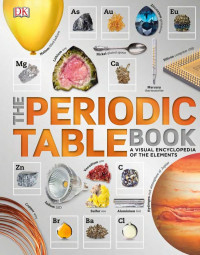- Main
- Society, Politics & Philosophy - General & Miscellaneous Philosophy
- Making the Social World: The Structure...

Making the Social World: The Structure of Human Civilization
John Searle¿Qué tanto le ha gustado este libro?
¿De qué calidad es el archivo descargado?
Descargue el libro para evaluar su calidad
¿Cuál es la calidad de los archivos descargados?
There are few more important philosophers at work today than John Searle, a creative and contentious thinker who has shaped the way we think about mind and language. Now he offers a profound understanding of how we create a social reality--a reality of money, property, governments, marriages, stock markets and cocktail parties. The paradox he addresses in Making the Social World is that these facts only exist because we think they exist and yet they have an objective existence. Continuing a line of investigation begun in his earlier book The Construction of Social Reality, Searle identifies the precise role of language in the creation of all ''institutional facts.'' His aim is to show how mind, language and civilization are natural products of the basic facts of the physical world described by physics, chemistry and biology. Searle explains how a single linguistic operation, repeated over and over, is used to create and maintain the elaborate structures of human social institutions. These institutions serve to create and distribute power relations that are pervasive and often invisible. These power relations motivate human actions in a way that provides the glue that holds human civilization together. Searle then applies the account to show how it relates to human rationality, the freedom of the will, the nature of political power and the existence of universal human rights. In the course of his explication, he asks whether robots can have institutions, why the threat of force so often lies behind institutions, and he denies that there can be such a thing as a ''state of nature'' for language-using human beings.
Año:
2010
Edición:
1
Editorial:
Oxford University Press, USA
Idioma:
english
Páginas:
224
ISBN 10:
0199576912
ISBN 13:
9780199576913
Archivo:
PDF, 7.88 MB
Sus etiquetas:
IPFS:
CID , CID Blake2b
english, 2010
El archivo se enviará a su dirección de correo electrónico durante el transcurso de 1-5 minutos.
El archivo será enviado a tu cuenta de Telegram durante 1-5 minutos.
Atención: Asegúrate de haber vinculado tu cuenta al bot Z-Library de Telegram.
El archivo será enviado a tu dispositivo Kindle durante 1-5 minutos.
Nota: Ud. debe verificar cada libro que desea enviar a su Kindle. Revise su correo electrónico y encuentre un mensaje de verificación de Amazon Kindle Support.
Conversión a en curso
La conversión a ha fallado
Beneficios del estado Premium
- Envía a dispositivos de lectura
- Mayor límite de descargas
 Convierte archivos
Convierte archivos Más resultados de búsqueda
Más resultados de búsqueda Otros beneficios
Otros beneficios
Términos más frecuentes
Listas de libros relacionados
















































































































































































































































 Amazon
Amazon  Barnes & Noble
Barnes & Noble  Bookshop.org
Bookshop.org 
![[美]约翰·塞尔; 李步楼(译) — 社会实在的建构](https://s3proxy.cdn-zlib.se/covers200/collections/genesis/a6b14d76bb4d4d71d6cb7cf940398369bd600cac63fa8fde28f2d21d3d7346da.jpg)







































